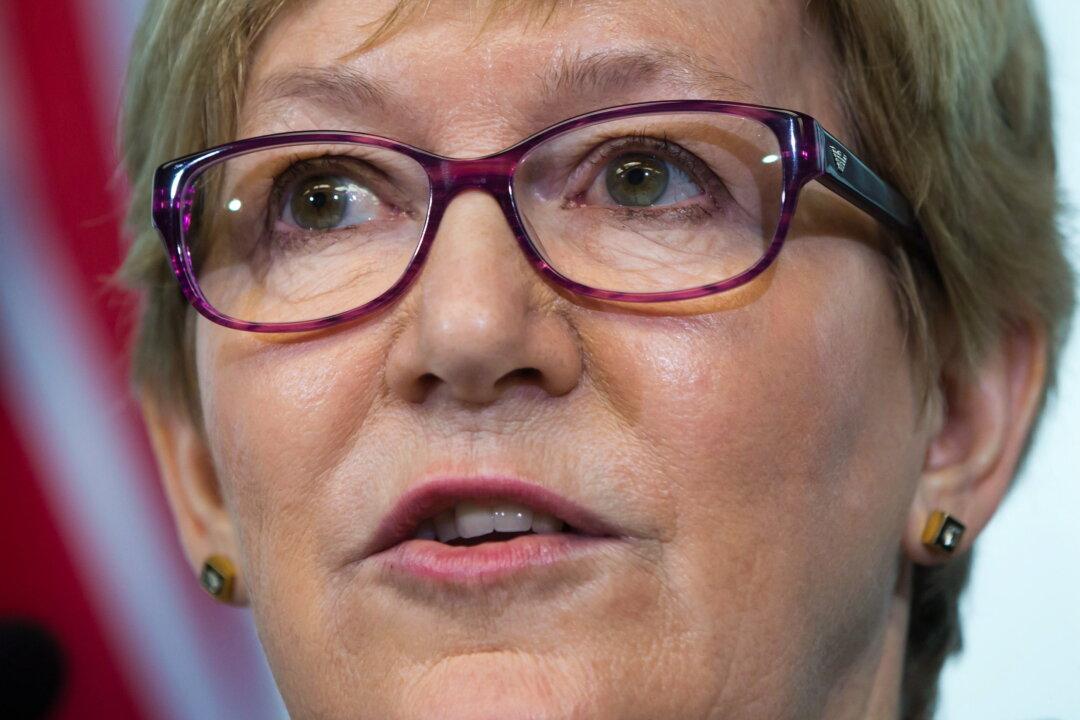A former British Columbia attorney general says a recent Purolator arbitration case that ruled in favour of unvaccinated workers is a “game changer” that could wipe out vaccine mandates for health-care workers in the province.
Suzanne Anton, a former justice minister under the B.C. Liberal government of Christy Clark, is weighing in on the likelihood of success for a lawsuit filed against B.C. Provincial Health Officer Bonnie Henry by a group of unvaccinated health-care workers. The doctors, nurses, and other health-care personnel, who were fired for not receiving COVID-19 shots, are asking B.C.’s Supreme Court to remove the province’s vaccine mandate so they can return to work.





